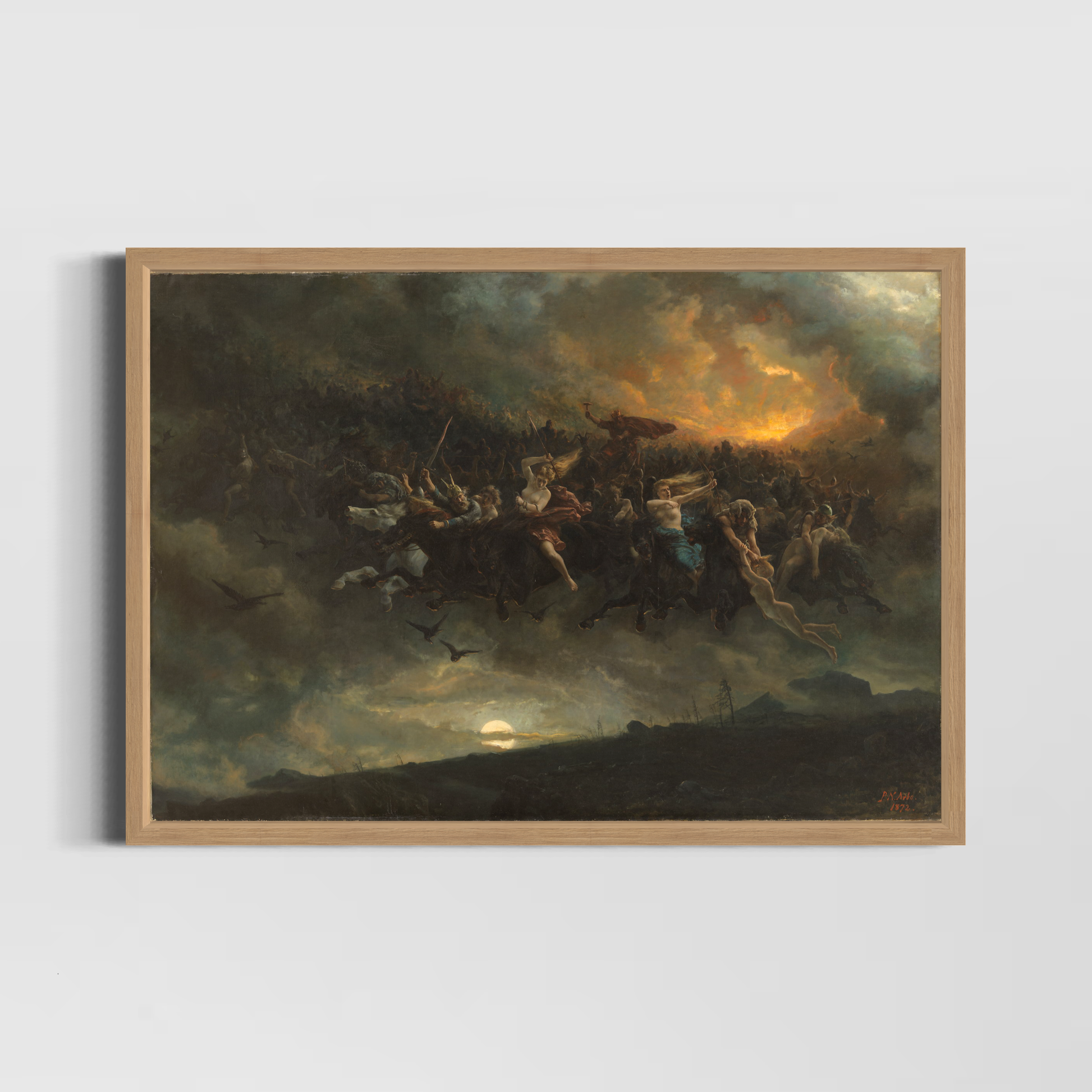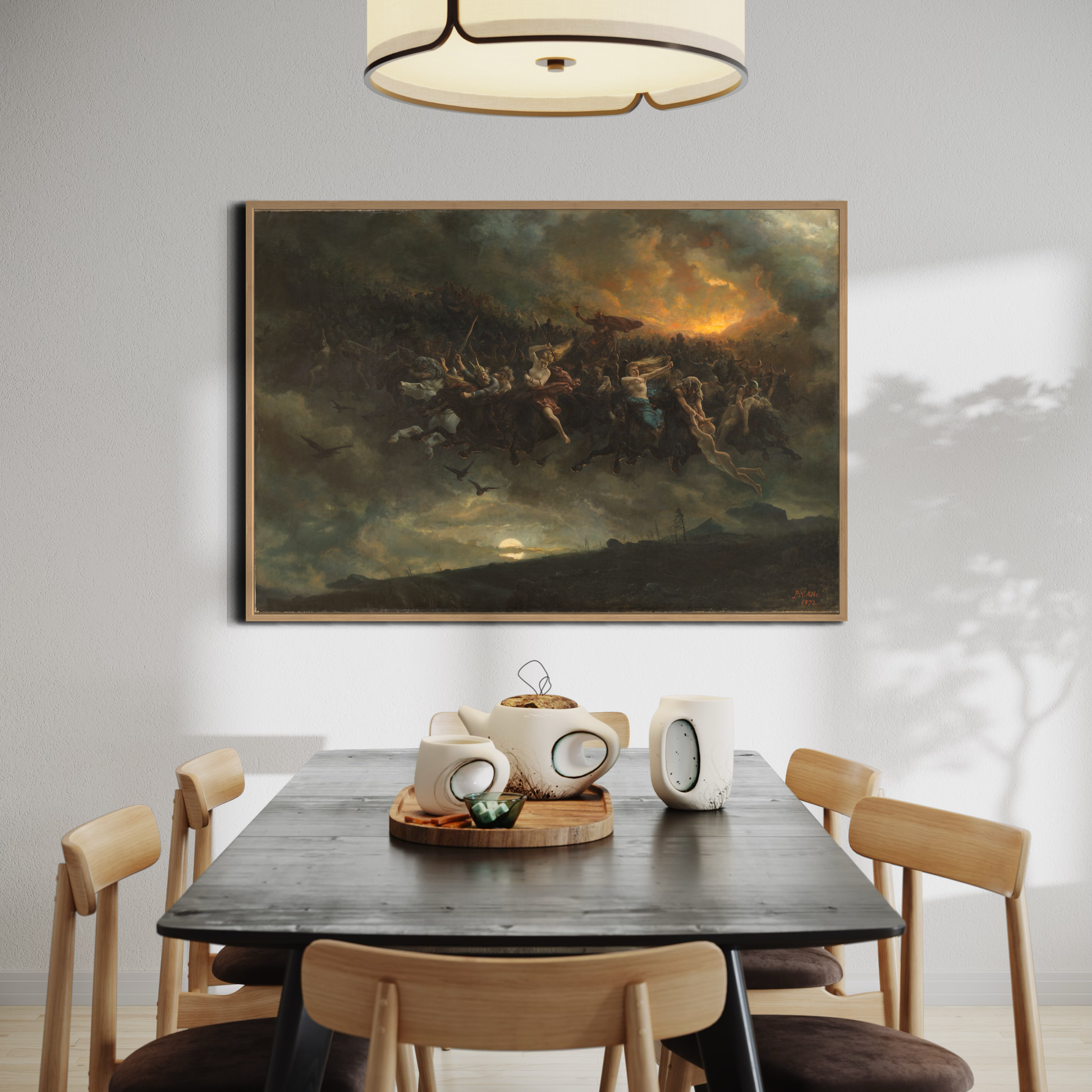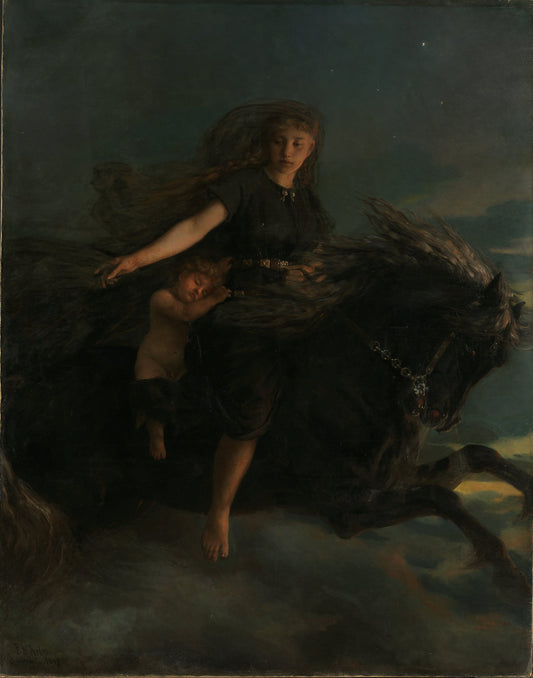Peter Nicolai Arbo
Åsgårds heron
Åsgårds heron
Couldn't load pickup availability
Experience museum-quality art from the National Museum's collection! Our Posters are printed on premium quality Litho White Matt (230 g) photo paper and feature a visible National Museum logo on the white border. Artprints are produced on exclusive Museum Rag (260 g) cotton art paper for an extra luxurious finish. Each print is made to order by Dáidda Printlab to ensure the highest quality and detail in the reproduction.
The Åsgårdsreien – Peter Nicolai Arbo's dramatic masterpiece
Peter Nicolai Arbo's painting Åsgårdsreien is a powerful depiction of the wild hunting expedition from Norse mythology, inspired by the poetry of national romanticism and archaeological finds. The motif is based in particular on Johan Sebastian Welhaven's poem from 1844, where the darkness of the night is filled with a ride of foaming black horses and celestial warriors.
In the painting, we see the menacing hordes charging forward under a dramatic sky. The riders are led by Odin, the mighty god, while Thor rages forward with his hammer raised, calling out to his goats Tanngnjost and Tanngrisne. Behind them, a blazing light is visible – is it Helheim they are leaving behind?
The image's dynamics and dark mood reflect the romantic contrasts between life and death, light and shadow. Åsgårdsreien is not just a work of art, but a tale of superstition, power and the fear of the unknown – a story that continues to fascinate.
About the original:
Dating: 1872
Other titles: The wild Hunt of Odin (ENG)
Designation: Painting
Material and technique: Oil on canvas
Technique: Oil
Material: Canvas
Dimensions: 166 x 240.5 cm
Keywords: Visual arts
Classification:532 - Visual arts
Motif: Folklore
Motif type: Mythological scene or figure
Religious scene or person
Delivery
Delivery
Pickup: You can pick up your package from us shortly. You will receive a pickup notification when it is ready.
Postal shipment: Delivery by Posten normally takes 2–5 days in Norway and up to 14 days to Europe and globally.
Packaging: All products are made to order and shipped rolled in environmentally friendly packaging.

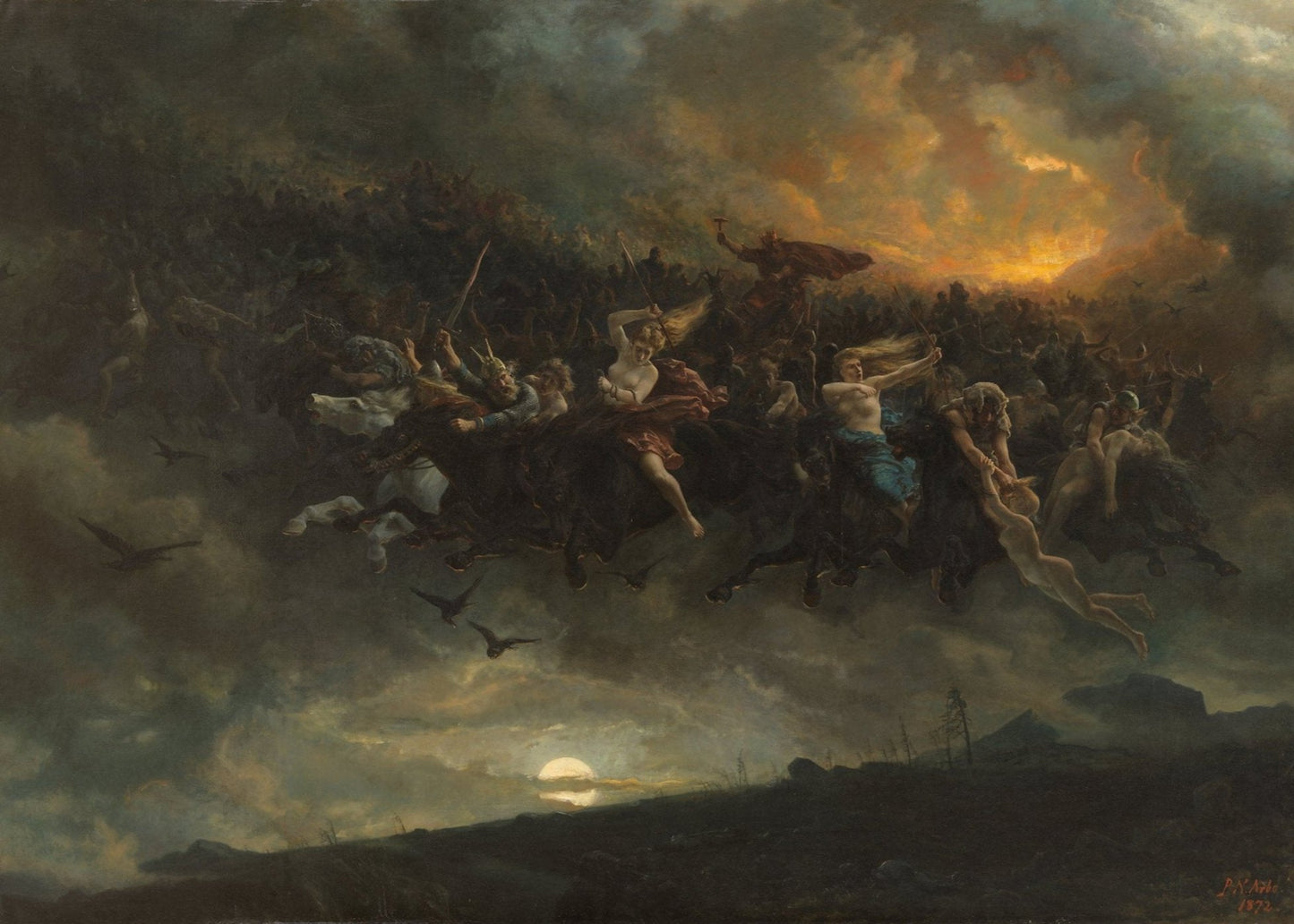
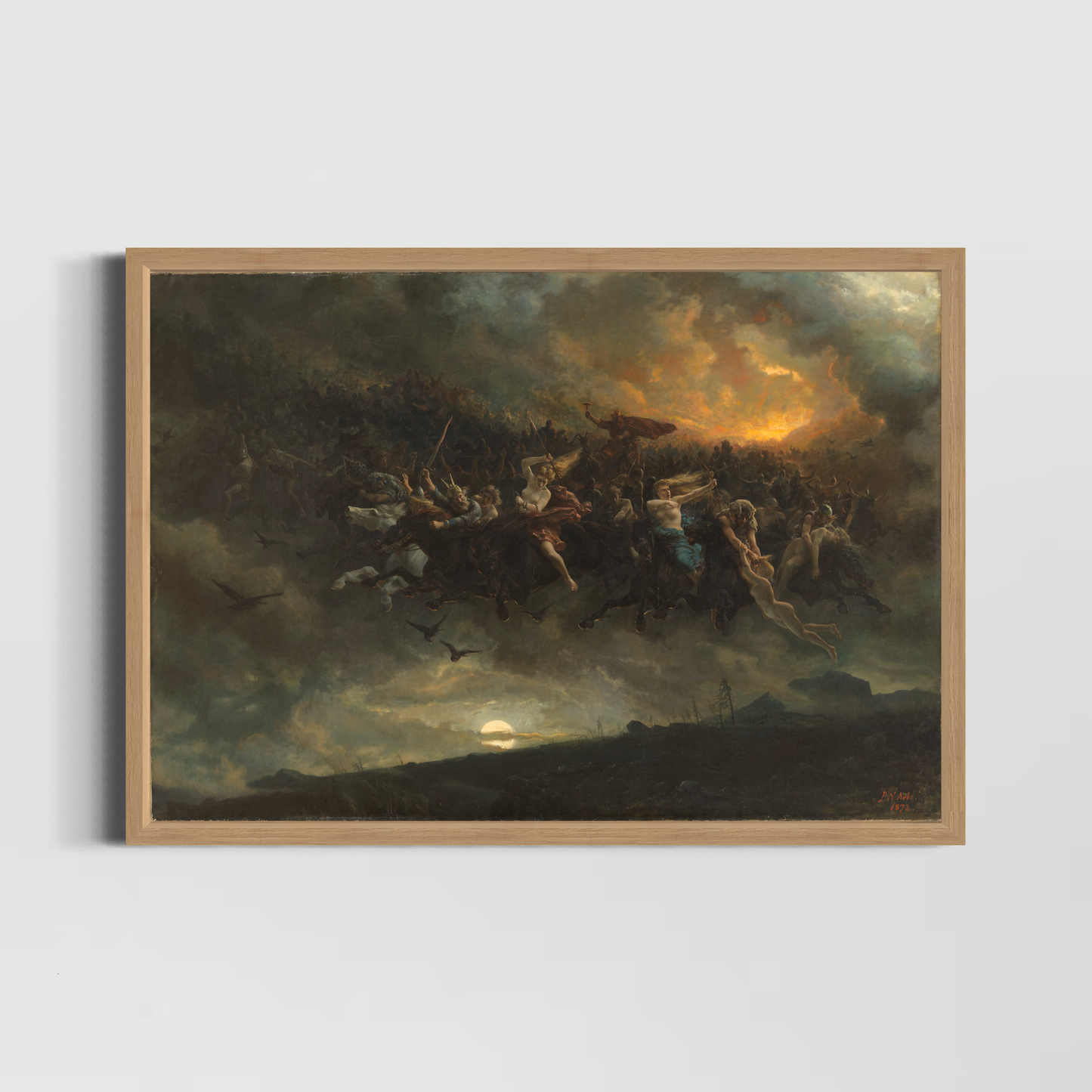
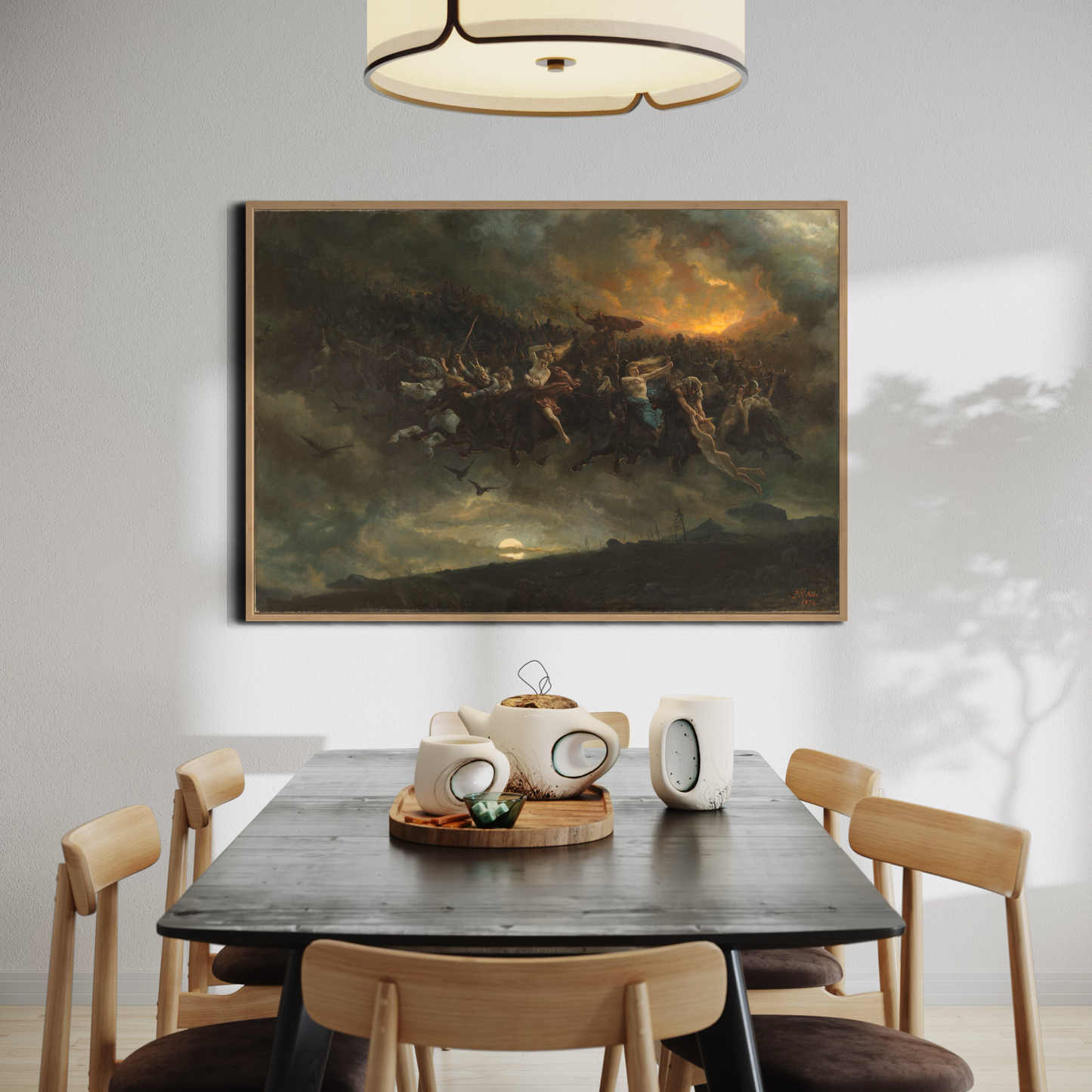
See more works
-
Åsgårds heron
Vendor:Peter Nicolai ArboRegular price From 150,00 NOKRegular priceUnit price per -
Horses on the mountain
Vendor:Peter Nicolai ArboRegular price From 150,00 NOKRegular priceUnit price per -
The Valkyrie
Vendor:Peter Nicolai ArboRegular price From 150,00 NOKRegular priceUnit price per

Peter Nicolai Arbo
Peter Nicolai Arbo was a Norwegian visual artist and painter born on 18 June 1831, and died on 14 October 1892. He is best known for his historical and mythological motifs, and is considered one of Norway's foremost specialists on these subjects.
Arbo studied for nine years in Düsseldorf, and developed there to become a skilled painter. Arbo had a special interest in horses, and often included the horse in his big battle scenes. He painted a number of famous works during his career, including the first representation of the Valkyrie in 1860. He also painted from European history, and one of his most famous works is The Conquered Standart. An episode of the 30 Years' War from 1857. In 1863 Arbo moved to Paris, where he lived for eleven years. This was an important period for his artistic development, and he developed into a skilled specialist in impact painting. He painted, among other things, Ingeborg, Frithjof's Beloved and the Battle of Waterloo during this period. Arbo's main work, Åsgaardsreien, was painted in Paris in 1872 and purchased for the National Gallery in the same year. The motif is taken from an old folk tale, and the image is filled with drama and an imaginative composition.
Arbo also painted portraits and altarpieces in addition to historical and mythological subjects. He is an important representative of the later national romantic painting in Norway, and enjoyed a great reputation in his time.



